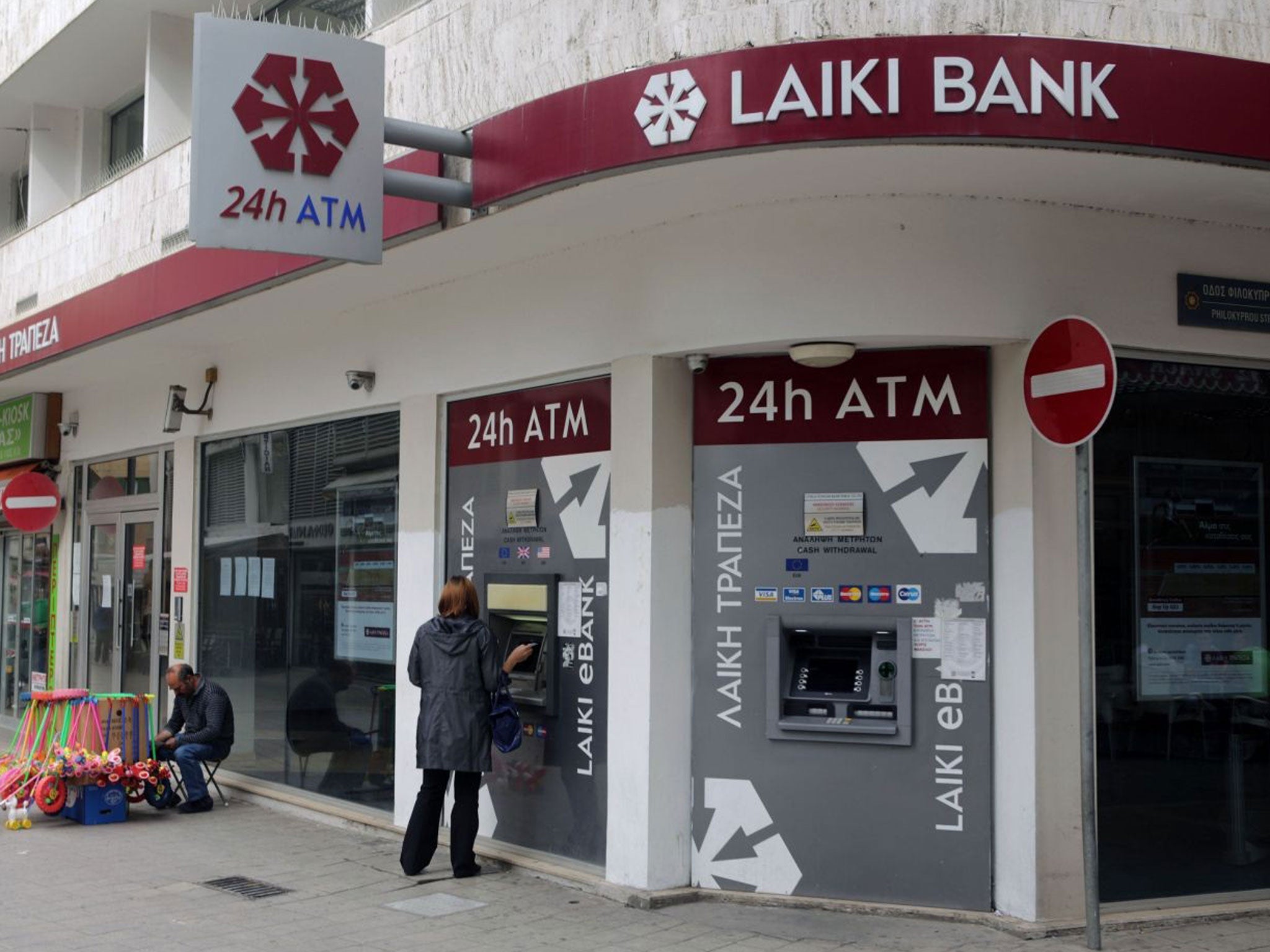Customers at Cyprus' biggest bank stung by 60% raid on savings
It is the latest attempt to meet the terms of the IMF/ECB bailout

Your support helps us to tell the story
From reproductive rights to climate change to Big Tech, The Independent is on the ground when the story is developing. Whether it's investigating the financials of Elon Musk's pro-Trump PAC or producing our latest documentary, 'The A Word', which shines a light on the American women fighting for reproductive rights, we know how important it is to parse out the facts from the messaging.
At such a critical moment in US history, we need reporters on the ground. Your donation allows us to keep sending journalists to speak to both sides of the story.
The Independent is trusted by Americans across the entire political spectrum. And unlike many other quality news outlets, we choose not to lock Americans out of our reporting and analysis with paywalls. We believe quality journalism should be available to everyone, paid for by those who can afford it.
Your support makes all the difference.Cyprus' central bank has confirmed that savers at the island's biggest bank will face a raid on around 60 per cent of savings over €100,000.
This is one of the conditions of a controversial €10 billion bailout from the International Monetary Fund and the European Central Bank.
Initial signs that big depositors in Bank of Cyprus would take a hit of 30 to 40 percent had already unnerved investors over the last week.
But now depositors lose any savings over €100,000. In return they will get shares in the bank worth 37.5 per cent of the cash value.
Cypriots are angry at the rescue's other associated costs, like the winding down of the island's second-largest bank, Cyprus Popular Bank, also known as Laiki, and an unprecedented raid on deposits over €100,000.
Laiki's assets will now be turned over to Bank of Cyprus. At Bank of Cyprus, about 22.5 percent of deposits over €100,000 will attract no interest. The remaining 40 percent will continue to attract interest, but will not be repaid unless the bank does well.
Those with deposits under €100,000 will continue to be protected under the state's deposit guarantee.
The punitive measures aim to raise the €6 billion demanded by the country's creditors to accompany the main €10 billion handout.
Banks reopened to relative calm on Thursday after the imposition of the first capital controls the euro has seen since it was launched a decade ago.
There are no signs for now that bank customers in other struggling eurozone countries like Greece, Italy or Spain taking fright at the precedent set by the bailout.
German Finance Minister Wolfgang Schaeuble told the German tabloid Bild: "Cyprus is and will remain a special one-off case. Savings accounts in Europe are safe."
European officials have worked hard this week to stress that the island's bailout was a unique case, after the clumsy suggestion by Eurogroup chairman Jeroen Dijsselbloem that the rescue would serve as a model for future crises rattled European financial markets.
"Together in the Eurogroup we decided to have the owners and creditors take part in the costs of the rescue - in other words those who helped cause the crisis," said Schaeuble, one of the architects of the euro zone's response to a debt crisis now in its fourth year.
"Cyprus's economy will now go through a long and painful period of adjustment. But then it will pay back the loan."
Cypriot President Nicos Anastasiades said on Friday that the bailout had mitigated the risk of national bankruptcy and would prevent it from leaving the euro.
The island has seen none of the angry street violence that frequently erupts in Greece but peaceful protests by students and bank workers have become an almost daily occurrence. At least 2,000 students protested outside parliament this week.
Etyk, a bank workers' union, called a rally outside parliament for Thursday to protest against potential job cuts and a hit on their pension funds.
Among other things Cypriots and foreigners are allowed to take only up to 1,000 euros in cash when they leave the island.
Join our commenting forum
Join thought-provoking conversations, follow other Independent readers and see their replies
Comments